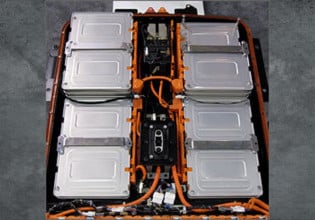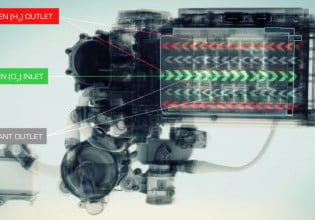Since the birth of lithium-ion batteries, their excellent performance has quickly established a pace in the battery market and has been applied in various industries. It became popular in mobile phone products in 2000 and gradually occupied the 3C consumer electronics market. Lithium-ion batteries are widely used, but few people are aware of their recycling. After use, most of them are disposed of as ordinary garbage. This caused serious pollution.
The cathode materials of lithium-ion batteries are mostly metal oxides embedded with lithium transitions. The most widely used one is LiCoO2, which is also the earliest commercial cathode material for lithium-ion secondary batteries. In addition, in-depth research on lithium-ion battery anode materials, people mixed a small amount of nickel LiCoO2 and used their mixed oxides. Currently, licoxni1-xo20, LiCoO2 and LiCoO2 are the most commonly used cathode materials for lithium ion batteries containing lithium cobalt oxide, lithium method, organic carbonate carbon materials, copper, aluminum and other chemicals. This is because batteries contain large amounts of metals, and cobalt is a rare element but is found in fairly high amounts in lithium-ion batteries. Therefore, the national recycling policy for lithium-ion batteries important considers the recycling of metals such as cobalt.
Recycling mainly involves the application of acid leaching and solvent extraction phase wet gold technology, followed by the use of electrochemical technology to deposit metal in the leachate and directly repair failed electrode materials. Metallurgical technology is an important technology for lithium-ion battery metal recycling. Therefore, with the development of metallurgical technology, microbial metallurgical technology is the most mature. So far, this technology has not been used to recycle lithium-ion batteries. As environmental requirements continue to improve, this technology will be widely used in lithium-ion battery recycling.
In the future, the recycling of lithium-ion batteries will not only recover useful resources, but also properly handle materials that will have adverse effects on the environment. At the same time, according to the development of lithium-ion batteries and future environmental requirements, the processing of lithium-ion batteries in the future will develop in the direction of integration and diversification.
The cathode materials of lithium-ion batteries are mostly metal oxides embedded with lithium transitions. The most widely used one is LiCoO2, which is also the earliest commercial cathode material for lithium-ion secondary batteries. In addition, in-depth research on lithium-ion battery anode materials, people mixed a small amount of nickel LiCoO2 and used their mixed oxides. Currently, licoxni1-xo20, LiCoO2 and LiCoO2 are the most commonly used cathode materials for lithium ion batteries containing lithium cobalt oxide, lithium method, organic carbonate carbon materials, copper, aluminum and other chemicals. This is because batteries contain large amounts of metals, and cobalt is a rare element but is found in fairly high amounts in lithium-ion batteries. Therefore, the national recycling policy for lithium-ion batteries important considers the recycling of metals such as cobalt.
Recycling mainly involves the application of acid leaching and solvent extraction phase wet gold technology, followed by the use of electrochemical technology to deposit metal in the leachate and directly repair failed electrode materials. Metallurgical technology is an important technology for lithium-ion battery metal recycling. Therefore, with the development of metallurgical technology, microbial metallurgical technology is the most mature. So far, this technology has not been used to recycle lithium-ion batteries. As environmental requirements continue to improve, this technology will be widely used in lithium-ion battery recycling.
In the future, the recycling of lithium-ion batteries will not only recover useful resources, but also properly handle materials that will have adverse effects on the environment. At the same time, according to the development of lithium-ion batteries and future environmental requirements, the processing of lithium-ion batteries in the future will develop in the direction of integration and diversification.




